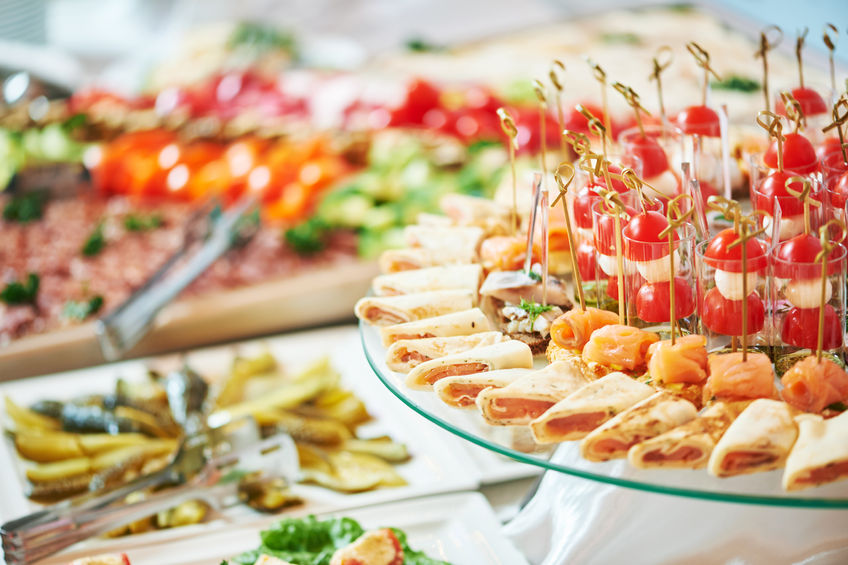Image Source – Google
Planning Stage
- Understand the client's needs and preferences
- Determine the event theme and style
- Create a tailored menu based on the event type and guest preferences
- Consider dietary restrictions and preferences of guests
- Estimate the number of guests to determine the quantity of food and beverages needed
- Select appropriate serving style and catering services(buffet, plated, family-style, etc.)
Menu Creation
- Develop a balanced menu with a variety of flavors and textures
- Incorporate seasonal and fresh ingredients for optimal taste and presentation
- Offer a mix of appetizers, main courses, side dishes, and desserts
- Consider dietary restrictions such as vegetarian, vegan, gluten-free, etc.
- Create signature dishes or drinks to add a personal touch to the event
Food Preparation
- Source high-quality ingredients from reputable suppliers
- Prepare food in a sanitary and organized kitchen environment
- Follow food safety guidelines to prevent contamination
- Cook dishes to perfection and ensure optimal flavor and texture
- Coordinate timing to ensure all dishes are served hot and fresh
Presentation
- Use high-quality serving platters, utensils, and glassware
- Create visually appealing displays that are Instagram-worthy
- Garnish dishes with fresh herbs, edible flowers, or decorative elements
- Ensure that food stations are organized and easy to navigate for guests
- Label dishes clearly, especially for guests with dietary restrictions
Service
- Train staff members to provide excellent customer service
- Ensure that staff is knowledgeable about the menu and can answer guest questions
- Maintain a friendly and professional demeanor when interacting with guests
- Anticipate guest needs and provide prompt and attentive service
- Coordinate with other event vendors (bartenders, servers, etc.) for smooth execution
Feedback and Follow-Up
- Solicit feedback from clients and guests to gather opinions on the food and service
- Use feedback to improve future catering events and menu offerings
- Thank clients for their business and ask for referrals or testimonials
- Follow up with clients after the event to ensure satisfaction and address any concerns
- Build relationships with clients to encourage repeat business and referrals
Conclusion
- Event catering is a complex process that requires careful planning, creativity, and attention to detail
- By following the steps outlined above, catering professionals can ensure a successful event from start to finish
- The art of event catering done right involves not only delicious food but also exceptional service and presentation
- Clients and guests will appreciate the effort put into creating a memorable dining experience for their special occasion
- Remember, a successful event caterer is not just a chef but a creator of lasting memories through food and service
